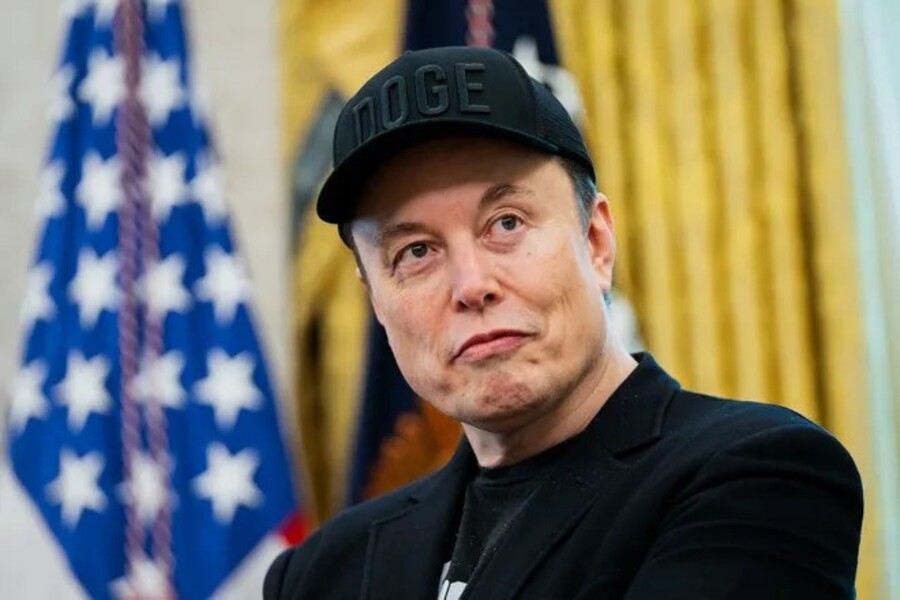In a dramatic turn that has sent shockwaves through the American political establishment, billionaire entrepreneur Elon Musk has announced the formation of a new third political party called the “America Party.” The declaration came just one day after President Donald Trump signed a sweeping tax and spending bill that Musk has fiercely criticized for weeks.
Posting on his social media platform X on July 5, Musk stated that he was launching the party because Americans are living under a “one-party system, not a democracy.” His statement was a direct condemnation of Republican lawmakers who supported the newly signed legislation, which the nonpartisan Congressional Budget Office estimates will add $3.4 trillion to the national debt over the next decade. Musk, previously a close Trump ally and major GOP donor, now seeks to unseat Republican incumbents who backed the bill in the 2026 midterm elections.
Musk’s fallout with the Republican Party represents a sharp pivot. He spent nearly $290 million supporting Trump and Republican candidates in the 2024 election cycle. But tensions mounted over the mega bill, leading to an increasingly public feud between Musk and the former president. On July 6, Trump lashed out on social media, claiming Musk had gone “off the rails” and declaring that third parties “have never succeeded in the United States.”
While the U.S. has long operated under a dominant two-party system, dissatisfaction with both the Republican and Democratic parties has grown. A 2024 Gallup poll found that 58% of U.S. adults believe a third major party is needed, citing both major parties’ failure to adequately represent the American people. Though the Libertarian and Green parties have had limited influence, no third party has won a presidential election in modern U.S. history. The last notable third-party presidential candidate to secure electoral votes was George Wallace in 1968.
Musk appears to be taking a more calculated approach. Rather than attempting a full presidential campaign, he has hinted that the American Party will strategically target specific congressional races, where a few seats could swing the balance of power. “Given the razor-thin legislative margins, that would be enough to serve as the deciding vote on contentious laws,” Musk wrote on X, following a poll he posted asking users if he should create a new political party. The poll drew 1.2 million responses, with 65% voting “yes.”
Support for the initiative has already begun to emerge from prominent public figures. Mark Cuban, billionaire entrepreneur and former owner of the Dallas Mavericks, expressed interest in helping the America Party get on ballots across the country. Anthony Scaramucci, former Trump White House communications director and now a vocal Trump critic, wrote on X that he wants to meet with Musk to discuss the party’s development.
Still, significant obstacles remain. The Federal Election Commission and individual states impose rigorous requirements for party registration, including signature thresholds, filing deadlines, and ballot access hurdles. Many existing third parties struggle to meet these standards nationally. Furthermore, decades of electoral tradition, media dynamics, and voter psychology have reinforced the binary Republican-Democrat system.
Historian Bruce J. Schulman of Boston University offered context in an interview last year, referencing Richard Hofstadter’s analogy that third parties in America are like bees: they sting, then die. According to Schulman, successful third parties usually emerge from social movements and aim to influence existing party platforms more than to seize national power directly.
Whether Musk’s effort will be the exception remains to be seen. With financial resources few can match, a massive online following, and growing discontent among voters, the America Party could gain momentum—especially if Musk maintains focus on winnable congressional districts rather than presidential ambitions.
The road ahead is uncertain. But Musk’s announcement signals not just a political experiment, but a challenge to the structure of American governance itself. If the American Party gains traction, it could mark the most serious third-party disruption in the U.S. in over a century—or become yet another symbol of outsider frustration that flares briefly before fading from the national stage.

